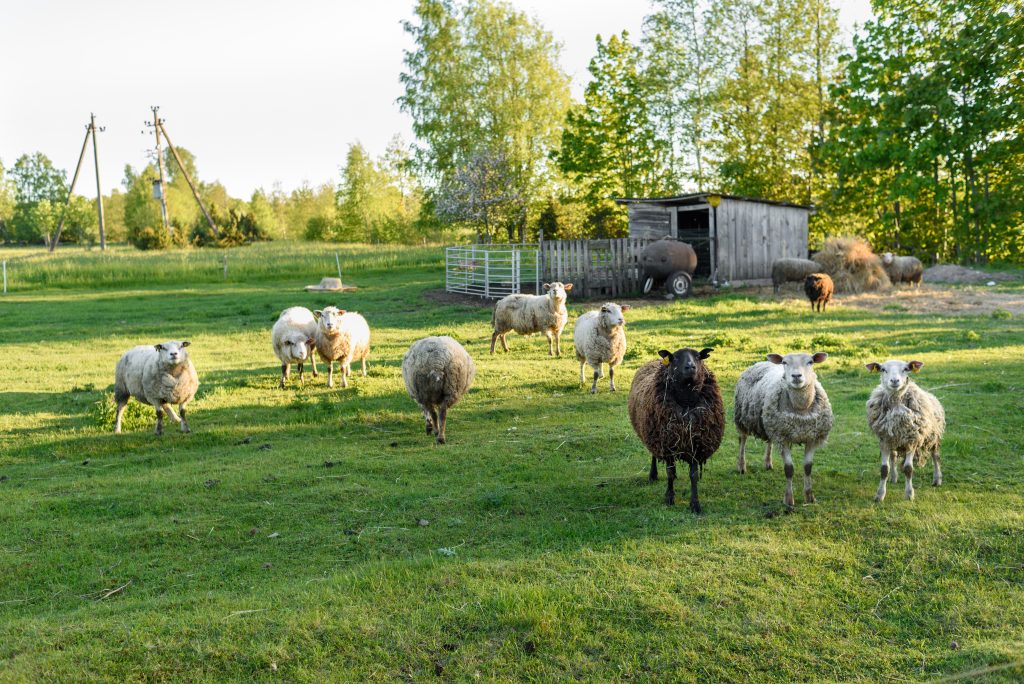 The current challenges of food scarcity, rising fuel costs, and supply chain uncertainty have prompted a shift in societal priorities. Many individuals are now opting for rural living and homesteading as a viable alternative to densely populated urban areas.
The current challenges of food scarcity, rising fuel costs, and supply chain uncertainty have prompted a shift in societal priorities. Many individuals are now opting for rural living and homesteading as a viable alternative to densely populated urban areas.
Whether seeking self-sufficiency or pursuing a new hobby, homesteading can be made easier by drawing from the experiences of those who have come before. While trial-and-error can be a valuable teacher, a strategic approach that draws on established knowledge can offer a more efficient path to success.
Animals are a fundamental aspect of any homesteading endeavor, regardless of its scale. In this article, we aim to provide guidance on the essential animal species that should be considered for a successful homesteading project. While chickens are commonly recognized as a go-to animal for homesteaders, animal husbandry entails a more comprehensive approach. Therefore, we will outline a range of animal options that are suitable for homesteading.
Incorporating one or more grazing animals
When considering grazing animals, it is essential to determine the specific purpose for keeping them. The selection of either a cow or a sheep is dependent on individual needs, such as meat, milk, or wool production. While sheep meat is an option, it may not be a preferred choice for everyone due to personal taste. A cow is often a more practical choice for meat production as it yields larger quantities and is a preferred meat source for many. Additionally, certain breeds of cows can serve dual purposes, providing both milk and meat.
If textile production is intended as a potential source of revenue and there is an interest in crafting homemade garments, raising sheep is a recommended choice. However, it is important to assess available space and grazing capacity to determine the feasibility of accommodating additional sheep.
While one or two grazing animals may suffice for the requirements of a small homestead family, raising livestock for commercial purposes demands ample space to accommodate a larger number of animals.
Acquiring a cow
According to traditional wisdom, a cow is considered a vital component of a functional farm, especially if food production is the primary objective. To determine the most suitable breed for your budget, region, and preferred meat variety, research is necessary.
Among the prevalent beef cattle breeds, Angus, Hereford, and Texas Longhorn are commonly recognized. If space is a concern, however, and large animals prove challenging to manage, the smaller Jersey cow presents an alternative option. In addition to their proficient milk production capabilities, Jersey cows also yield savory beef.
The number of cows to raise on a homestead will have financial implications, as it influences feed expenses, which increase in proportion to the number of animals kept. Additionally, adequate pasture must be available to support the grazing needs of the cows.
Acquiring sheep
Sheep are often preferred as a starter or training animal due to their lower feed costs and maintenance requirements compared to cattle. The absence of heavy-duty fencing further reduces expenses. Sheep can thrive on grass alone, negating the need for feeders and waterers. However, a notable concern with sheep is their increased susceptibility to parasites and worms, which can inflict significant harm on the sheep before detection.
Mini dairy goat
Among homestead beginners, miniature dairy goats are commonly favored as they require minimal maintenance and provide a source of milk for the family. These goats are typically produced by crossbreeding Nigerian dwarf goats with purebred American goats, and multiple breeds are available for selection. It is suggested to commence with the Nigerian Dwarf breed due to its favorable attributes.
To establish a sustainable dairy goat herd, it is recommended to acquire a breeding pair consisting of a buck and a doe. The doe, once bred, will produce milk to feed its offspring and will continue to lactate for a duration of up to eight months after giving birth. Nigerian Dwarf goats are a versatile breed that is known for their high productivity despite their diminutive size. They are capable of producing up to two quarts of rich and nutritious milk per day and are considered a low-maintenance option for novice homesteaders.
Choosing a meat rabbit
Meat rabbits are a suitable option for small homesteads due to their low space requirements. They can be housed in cages or hutches and can coexist harmoniously with other animals, particularly fowl. Consequently, constructing a spacious chicken or duck coop to house both rabbits and fowl can be a prudent decision for your homestead.
Maintaining a rabbit farm can be a highly productive venture as rabbits are known for their prolific breeding, leading to an ample supply of meat. If the rabbit population becomes unmanageable, surplus offspring can be sold, providing an additional source of income.
If you are considering raising rabbits, incorporating their waste as a fertilizer in your garden can be a beneficial practice for your homestead. Rabbit manure is a nutrient-rich fertilizer with a high nitrogen content, making it an ideal organic fertilizer. To minimize its odor, it is recommended to place the cages above a mulch pile. The manure will mix with the mulch, creating compost, which can later be used in your garden.
Ducks
As previously stated, chickens are a popular choice for homesteaders due to their ability to lay eggs. However, considering adding ducks to your flock may be beneficial as they are versatile birds that can enhance your meat and egg production.
In my professional opinion, the Muscovy duck is an excellent choice for a homestead bird due to its unique genetic makeup, which can be traced back to geese ancestors.
Unlike other duck breeds that have been selectively bred, Muscovy ducks are more closely related to their wild counterparts and possess a higher degree of self-sufficiency. They are also exceptional foragers and enjoy flying if their wings are not clipped. One of the most desirable traits of these ducks is their ability to raise their young and their quiet demeanor, which eliminates the risk of noise complaints from neighbors. Additionally, they can assist in controlling garden pests such as slugs.
In terms of size and meat production, Muscovy ducks are superior to their hybridized counterparts, weighing up to 15 pounds and yielding twice the meat. Although they are not as prolific egg-layers as chickens, the eggs they lay are highly nutritious. While the number of eggs may be fewer than that of chickens, the superior nutritional value of Muscovy duck eggs compensates for this limitation. Furthermore, their meat-to-bone ratio is superior to that of chickens, making them an excellent option for meat production.
Pigs
Maintaining pigs on your homestead can be a labor-intensive task, and if you’re considering raising them, it’s advisable to opt for Kunekune pigs that originated from New Zealand to make the task more manageable. These medium-sized pigs possess a considerably more amiable disposition than their American counterparts. Kunekune pigs are plump and rounded, with female adults weighing between 100 to 180 pounds, while males typically weigh between 200 to 250 pounds. With their truncated snouts, they won’t have issues rooting on the ground, nor will they test your fences.
One of the key benefits of Kunekune pigs is their ability to thrive on a grass-based diet, making them highly suitable for foraging. Unlike other pig breeds that rely on grains as their primary source of nutrition, Kunekune pigs can subsist on foraged food. This makes them a highly favorable choice, especially if you have an existing pasture for other livestock, such as cows or sheep.
Conclusion
Raising animals for your homestead requires thorough research and patience, as it is a continuous learning process. It is a rewarding experience to provide food for the family from your own self-sufficient operation. With dedication and hard work, the yields will improve over time.
Now is a great time to sell! If you or someone you know is considering selling your home or land, we would be happy to offer a complimentary consultation. Call New Earth AVL Realty today and Contact Us.
If buying a home, or selling your house in 2023 is your goal, call us today. New Earth AVL Realty and I would be honored to connect, and Be of service to you and your family!
Many Blessings,
Jason Martini
828.515.1771 (google voice) or 530.615.9345 (direct)
PS. Who do you know that I can serve?… Who is choosing to buy, sell, or invest in real estate in AVL or Beyond? I Am grateful for your referrals! Your friends and family will thank you for connecting us!
PSS. Please feel free to comment below and let us know how you liked this blog post and what it brought up in you. And by all means… share it on your social media sites too!


